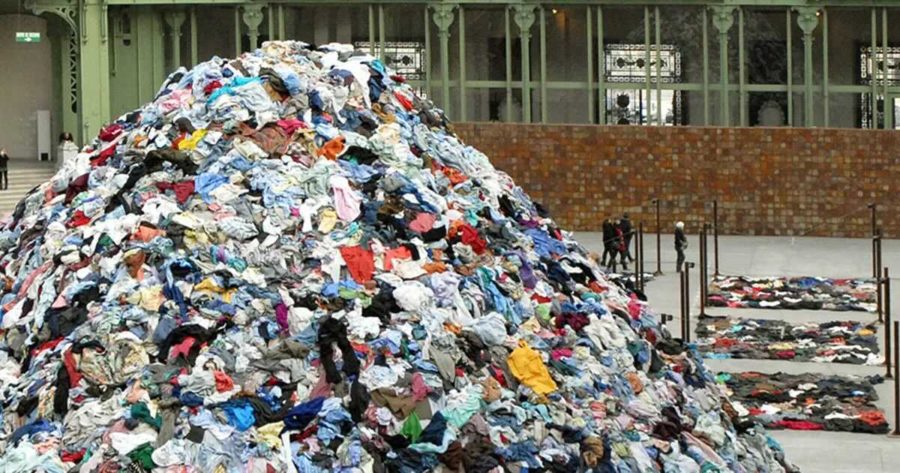Fashion on Fire
Most people know that flying or driving a car is hazardous to the environment. But what you probably don’t know is that the fashion industry takes more of Earth’s energy than both flying and shipping combined. Consider the clothes you’re wearing right now. Do you know where they came from? Who made them? Or how many materials and natural resources were used to produce them? The secrets of the fashion industry have flown under the radar for far too long, causing job inequalities and detrimental consequences on our planet.
Since the age of Industrialization, humans have made steady progress towards the most productive, streamlined, and wealthy versions of ourselves that we can be. These leaps have led us to great achievements, such as the invention of the internet, the smartphone, and the lazy boy recliner – all of which make life easier, on the surface. But how much have the concepts of ‘what’s easiest’ and ‘what’s normal’ blinded us to the crises that our industrialized countries cause for those less fortunate than us, and for our planet?
The fashion industry as a whole provides millions of jobs worldwide, ranging from rich executive directors to the poorest of laborers in developing countries who are reliant on their jobs in sweatshops as their only source of income. Because of the immense amount of people involved in the industry, it seems impossible to envision an alternative that would provide as much financial support as the fashion industry. However, there are also many jobs within the industry that revolve around sustainability. According to the fashion magazine Vogue, jobs such as bioengineer, textile chemist, authenticator, sustainability manager, circular design assistant, and textile recycling operations manager are all realistic and attainable jobs for people working globally in the industry. All that it takes is a company’s initiative and environmental awareness to make a change in their infrastructure, resulting in a huge positive impact on the environment.
Companies such as London-based Boden, which participates in the HERProject, provide women in developing countries with tools to strengthen their health, confidence, and voice in the workplace. Boden’s choice to empower the workers is giving recognition to everyone in their corporation, and enabling a more sustainable industry to emerge.
By obsessing over ease of access and money, we as a humanity have taught ourselves that it’s okay to ignore the aftermath: the destruction, and the stuff that falls below the radar of mainstream media. And while the latent horrors of our modern development are beginning to be exposed, there simply is not enough public knowledge for many people to understand, or better yet, make a change. If we as humanity want to have any chance at a greener, or rather, extant future, we need to collectively realize the toll of fast fashion, and replace the industry with a sustainable option that accounts for and has a responsibility to the betterment of the jobs and economies which it provides.








